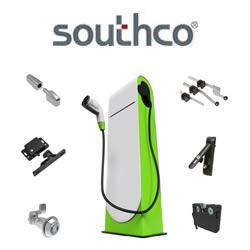SEIA Releases Updated 'SEIA Residential Consumer Guide to Solar Power'
Available online, the free guide offers those interested in going solar a one-stop shop to better understand the basics of solar energy and ownership options.
WASHINGTON, D.C. - To advance efforts to educate residential solar consumers across America and pave the way to a positive solar buying experience, the Solar Energy Industries Association (SEIA) launched an updated SEIA Residential Consumer Guide to Solar Power.
Available online, the free guide offers those interested in going solar a one-stop shop to better understand the basics of solar energy and ownership options. It includes key questions to ask solar installers before entering a transaction. The guide is a result of a joint effort of the leading companies across the solar industry and goes hand in hand with SEIAs existing Solar Business Code by which all SEIA members abide.
"The residential solar market is expanding into new states at a rapid pace, and because of that its critical that potential solar customers have the tools they need to fully understand solar transactions," said Tom Kimbis, SEIAs executive vice president. "By demystifying the buying decision solar can find its way onto millions of new American homes."
"Education about home solar and batteries is vital for empowering freedom of energy choice," said Nicole Sitaraman, senior manager of public policy at Sunrun. "Sunrun is deeply committed to meeting consumer expectations via transparent processes and clear information, and we encourage all potential solar customers to read this guide."
"My company has been involved with solar installations since 1980," said Ed Murray, president of Aztec Solar, based in Rancho Cordova, Calif. "The new SEIA consumer protection guide shows the strong commitment of our industry as solar has become a mainstream energy choice for Americans."
There are now more than 1.6 million solar installations in the United states, most of which are on residences. GTM research estimates that the United States will reach 4 million installations by 2023. With that growth will come an increasing need to educate homeowners.
The new version of the guide includes questions to ask your solar company about selling a home equipped with solar panels, a new primer on solar plus storage with what questions to ask about installing storage systems, and tips on taking care of your system.
The guide is part of a series of publications by SEIA and the industry to promote increased consumer protection across the entire solar marketplace. Complementing the work of public agencies, the solar industry is committed to a positive customer experience.
In addition to the guide, the SEIA Consumer Protection Portal contains tools for consumers and companies alike, including standardized solar contracts, residential disclosures, the SEIA Guide to Land Leases for Solar, a guide for landowners looking to go solar, a community solar guide and the SEIA Solar Business Code.
The SEIA Residential Consumer Guide to Solar Power is periodically updated and augmented with additional tools as the U.S. market grows and matures, so consumers can stay informed with the latest information. To access the guide and other related consumer protection resources visit: http://www2.seia.org/e/139231/nitiatives-consumer-protection/2bjpbl/250800771
###
About SEIA®:
Celebrating its 44th anniversary in 2018, the Solar Energy Industries Association® is the national trade association of the U.S. solar energy industry, which now employs more than 250,000 Americans. Through advocacy and education, SEIA® is building a strong solar industry to power America. SEIA works with its 1,000 member companies to build jobs and diversity, champion the use of cost-competitive solar in America, remove market barriers and educate the public on the benefits of solar energy. Visit SEIA online at www.seia.org.
Featured Product

Southco Inc. - POWER UP YOUR CHARGING DESIGN
With engineered access solutions for electric vehicle charging equipment. Southco's engineered access hardware, including locks, latches and hinges can help Electric Vehicle (EV) charging manufactures to achieve high standards of equipment performance, usability and security, providing a seamless charging experience for drivers.
